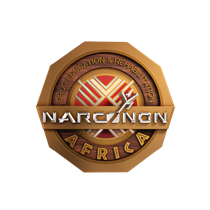Recognizing the Signs of Substance Abuse

Is It Time to Get Help?
Many people find themselves in a challenging place, wondering if their relationship with a substance has moved from casual use to something more serious. It’s a question that can be difficult to ask and even harder to answer. The first and most crucial step is to understand that asking this question is not a sign of failure - but a sign of self-awareness and strength. This article is designed to help you identify the common signs of substance abuse and provide clarity on when it’s time to seek assistance.
Understanding the Signs
Substance abuse isn't just about how often or how much you use a substance, it’s also about the impact it has on your life. While there is no single checklist that applies to everyone, there are several key indicators that a problem may be developing.
- Loss of Control: You might find yourself using the substance more often or in larger amounts than you originally intended. Maybe you only planned to have one drink or use a small amount, but you end up consuming more. You might also find yourself unable to stop, even after setting a goal to do so.
- Preoccupation and Cravings: You may notice that a significant amount of your time is spent thinking about the substance. This can include planning when you'll use it, obtaining it, or recovering from its effects. Cravings – an intense desire or urge to use can become a dominant force in your thoughts.
- Impact on Major Life Areas: A clear sign of a problem is when your substance use begins to interfere with your responsibilities and relationships. This could look like a decline in performance at work or school, neglecting your hobbies, lying to loved ones about your use or arguments with family and friends. You may start to choose using the substance over activities you once enjoyed.
- Tolerance and Withdrawal: Your body can adapt to the presence of a substance over time, leading to a need for a larger dose to achieve the same effect. This is called tolerance. The reverse can also happen, if you stop using the substance, you might experience physical or psychological symptoms like anxiety, irritability, sweating or tremors. These are signs of withdrawal.
- Continued Use Despite Negative Consequences: Perhaps the most telling sign is continuing to use the substance even when you know it’s causing problems. You might have legal issues, health concerns (like a persistent cough from smoking or stomach problems from drinking), or strained relationships, but you feel unable to stop.
When to Seek Assistance: A Sign of Strength
If you read through the signs above and any of them resonate with you, it’s a good time to consider seeking help. The simple act of questioning your own behavior is a powerful first step toward change. Asking for help is not an admission of weakness, it’s an act of courage. It acknowledges that you are ready for a different way of life. The path to assistance doesn’t have to be a single, dramatic moment, it can be smaller steps like talking to a trusted friend or family member. Sharing your concerns with someone who cares about you can lift a tremendous weight off your shoulders.
Remember, substance abuse is a treatable condition. The goal of seeking help is not to be judged, but to be supported on your journey to a healthier, more fulfilling life. The most important thing to know is that you don’t have to go through this alone.
